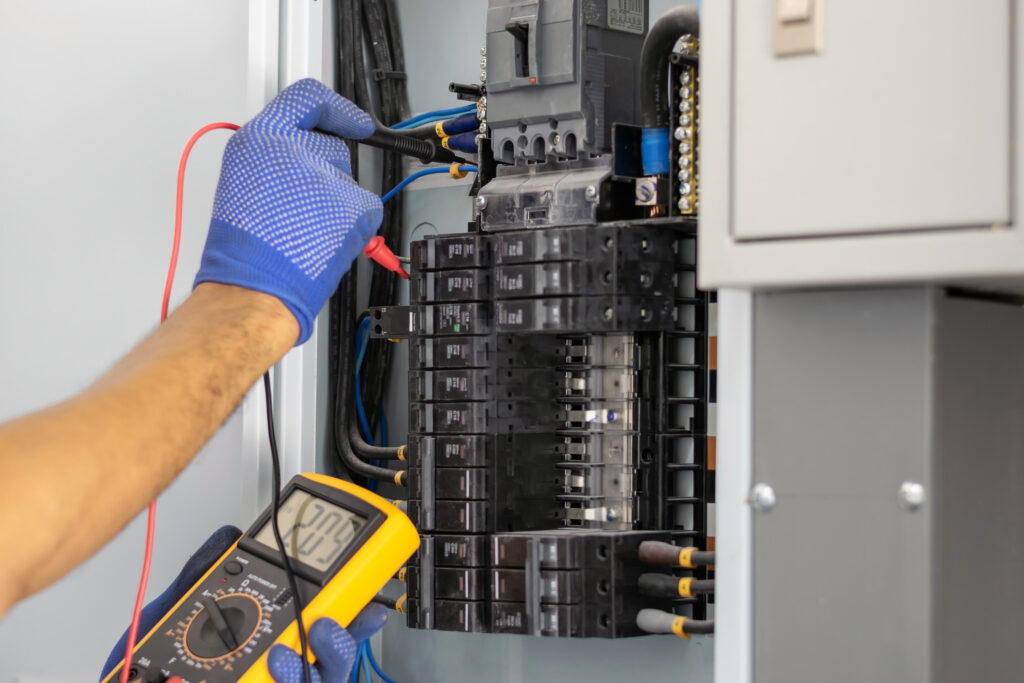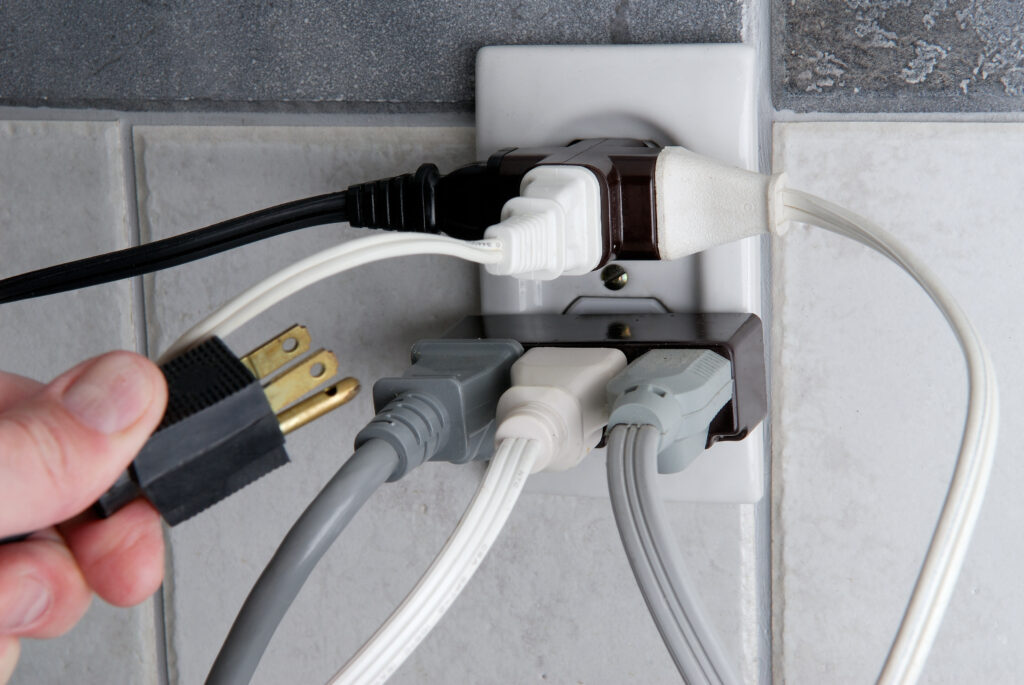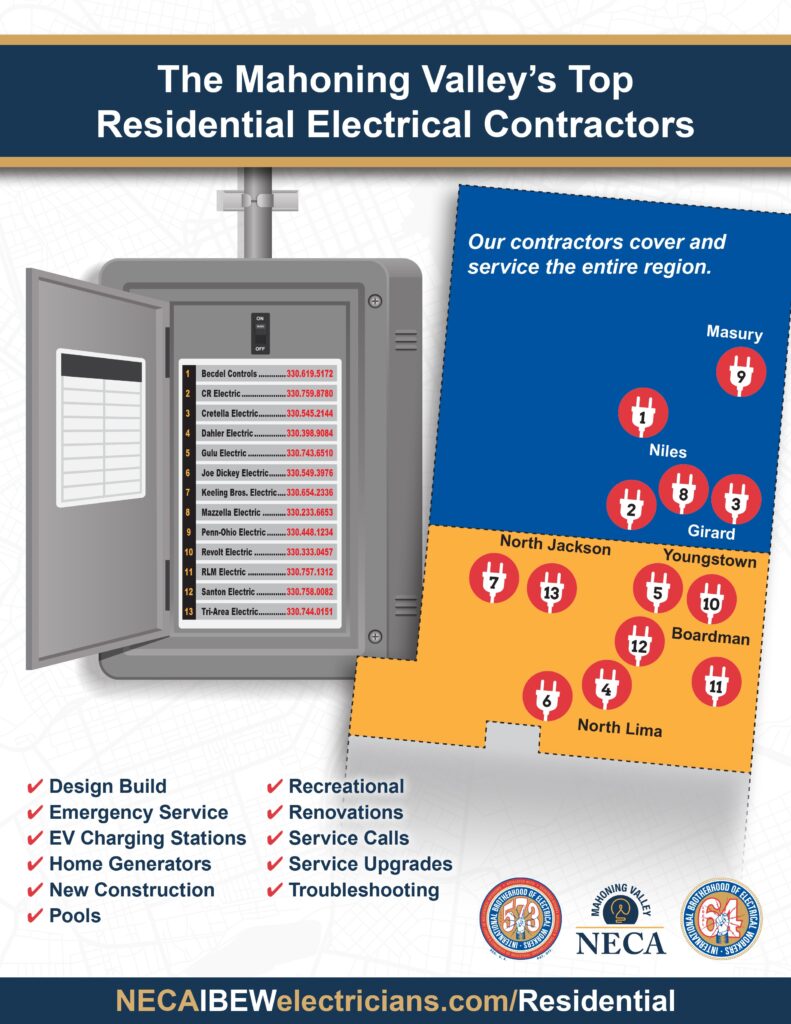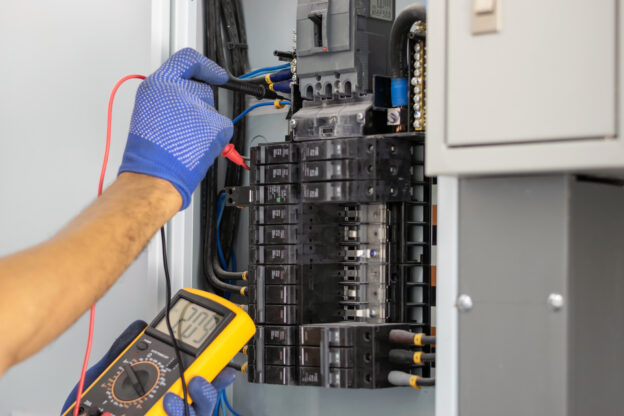It’s important to stay aware, and be prepared, when it comes to electricity in your home. May is Electrical Safety Month and a good time to review the most practical ways to protect you and your family. From checking appliances, understanding the basics about surge protectors and knowing when to hire the professionals, following these guidelines can help you feel safe and put your mind at ease.
Get an electrical system inspection
Have a licensed, experienced electrician perform an inspection every three to five years. It can help prevent costly repairs, identify hazards and improve the efficiency of the electrical system – ultimately saving you money.

An experienced electrician should inspect a home’s electrical system every three to five years.
Install GFCIs, surge protectors in appropriate places
Your home should have ground fault circuit interrupters (GFCIs) installed in all wet areas, such as the kitchen, bathroom and laundry room. These will help stop electrical shocks by quickly shutting off power when they detect a ground fault. Electronics can also be damaged or destroyed by power surges, so getting a surge protector cuts the flow of electricity to save your device.
Don’t overload outlets
Plugging in too many items at once is risky and can start a fire. If you need to plug in multiple things in one place, get a power strip with built-in circuit protection, or use different outlets.

Overloaded outlets are risky and a fire hazard.
Unplug what’s not in use, inspect cords
This applies to devices and appliances. You can help save energy and prevent fires due to possible faulty wiring or overheating. In addition, check for any frayed or damaged cords in your home. Make sure they aren’t being pinched by furniture or doors and do not come in contact with water.
Extension cords should be temporary
Never use these on a permanent basis. If you need to use an extension cord, make sure it’s rated for the amount of power you will be drawing from it and that it’s not damaged. If you find you need more outlets, it might be time to assess whether you need an experienced electrician to install them for you.
Know the warning signs
Although you might be following all the rules when it comes to outlets and plugging in devices, a hidden issue could be lurking. Use your senses to note red flags about possible electrical problems in your home. These include buzzing sounds from appliances, lamps or wiring, warm light switches or outlets, odd smells around electrical units, frequently tripped breakers, sparking outlets/flickering lights or bulbs that burn out quickly and any signs of pests chewing on wires.
 When in doubt, call the professionals
When in doubt, call the professionals
Electrical work should not be taken lightly. Knowing your limits is key to keeping everyone in your home safe. It’s important to remember some jobs are better done by experienced electricians. Even basic projects like wiring light fixtures can be dangerous. You can also risk overloading your home’s service capacity with some projects, which can cause long term damage and be very costly in the long run.
These practical tips offer guidance on electricity in your home. Investing in preventative measures now helps avoid future problems and ensures safety today. By leaving the complex jobs to a licensed electrical contractor, you’ll know the work is done correctly and up to code, and the only thing left will be peace of mind. You can also find more information through the Electrical Safety Foundation International (ESFI).
NECA-IBEW Electricians is an association of reliable residential and commercial electrical contractors in the Mahoning Valley, and union electricians from IBEW Local 64 in Youngstown and IBEW Local 573 in Warren.


